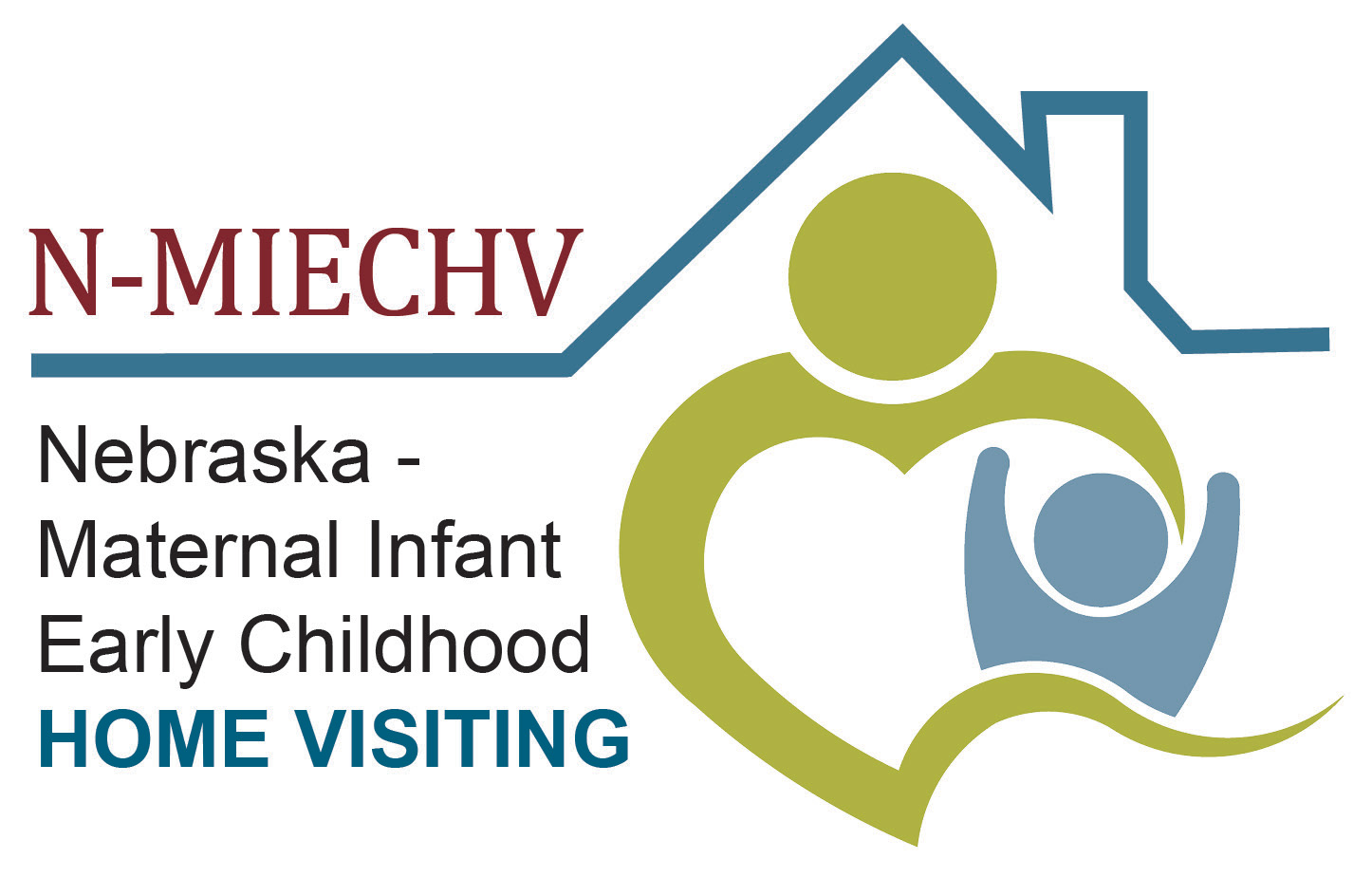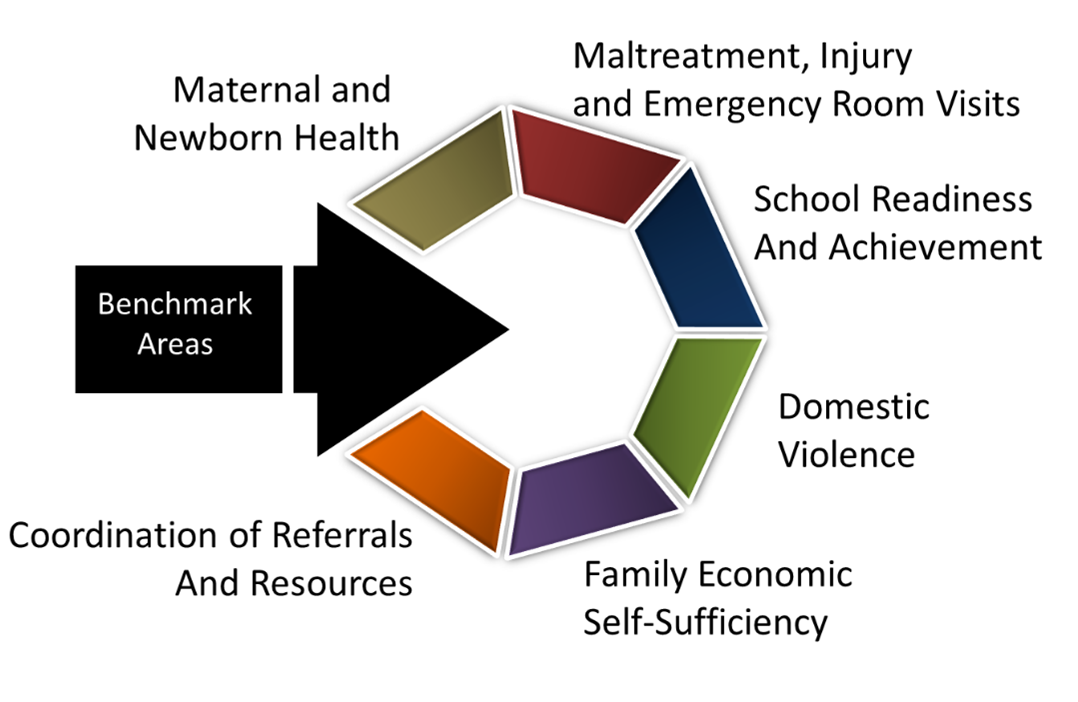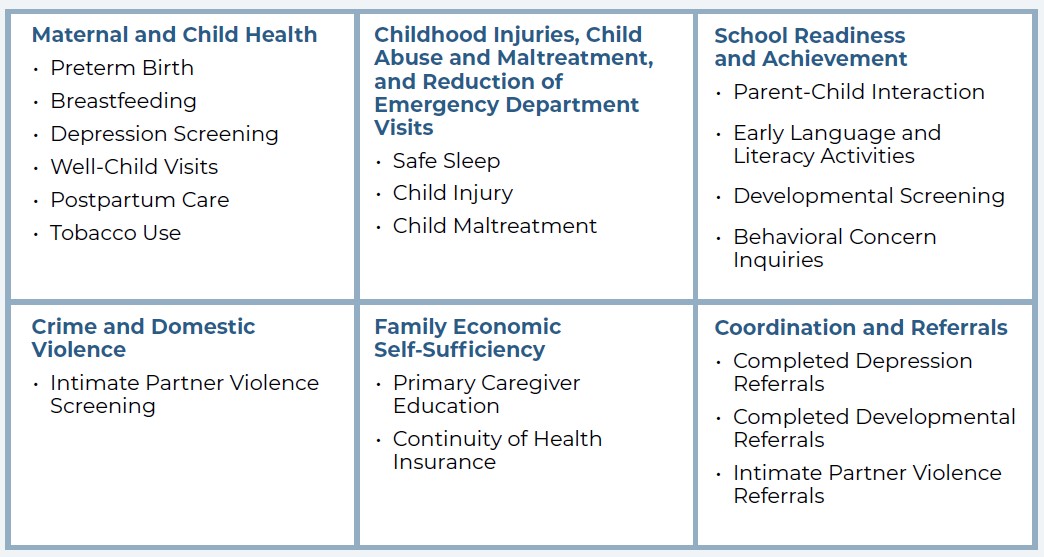No

Home Visitors are Partners in Resilience.
The “Evidence" in “Evidence-Based"
In our programs, we strategically gather data in deliberate and meaningful ways. Documentation at the individual family level is collected on six main areas in the lifespan:

Under each one of these areas, is a series of measures. The measures are the documentation that is entered into a case management system (ie: FamilyWise developed by Datatude, Inc.) for every family participant. The goal of evidence-based home visiting programs across the nation is to create positive change in these areas, or “Benchmarks." The data that N-MIECHV collects directly impacts these areas and in the analysis of that data, we can see how the lives of
Nebraska families are impacted on a statewide level.
 View the accessible PDF.
View the accessible PDF.
The 19 measures collected are sent electronically to
Kansas University Center for Research (KU) for analysis. KU has developed an analysis and reporting system for several Midwest states implementing MIECHV programs, and are experts in the requirements and guidelines. The system is called
Data Application and Integration Solutions for the Early Years, or DAISEY. The analysis of site-specific and statewide data reports on each of the measures in the benchmark plan are presented quarterly.
N-MIECHV and KU collaborate to provide training, technical support and assistance to all of the local implementing agencies in the process of collecting, cleaning, and reporting the data. With the collection, analysis, and comparison of data we can prove that implementation of home visiting in communities is making a difference and moving the needle in Nebraska on positive maternal-child health outcomes. Every three years, N-MIECHV submits benchmark data to HRSA (Health Services & Resources Administration – the federal administrators of the MIECHV grant). Nebraska must show improvement on four of six benchmarks to secure formula funding.
Annual Statewide Benchmark (DAISEY) Reports
Continuous Quality Improvement
In evidence-based programs,
Continuous Quality Improvement (CQI) plans at the local and state levels assure that the data supports programmatic decision-making. N-MIECHV maintains a
State CQI Team made up of state and local staff that meet quarterly to discuss, plan, implement, and report on potential improvements to be made across programs. The methodology is based on formal training from Michigan Public Health Institute and refresher training is offered annually. Local programs submit quarterly reports on state CQI plans as well as local CQI plans.
A lot of people have gone further than they thought they could because someone else thought they could.
Zig Ziglar